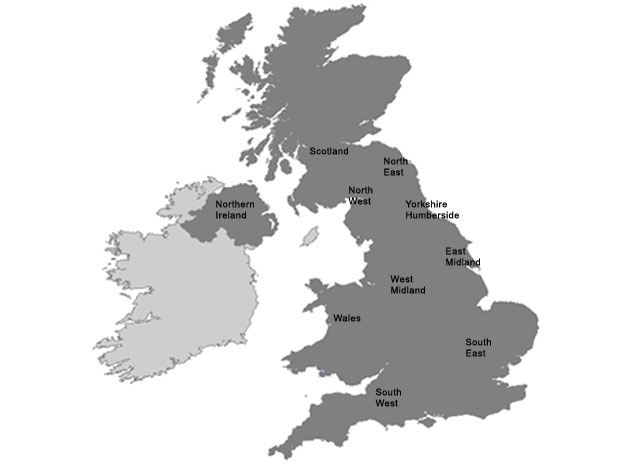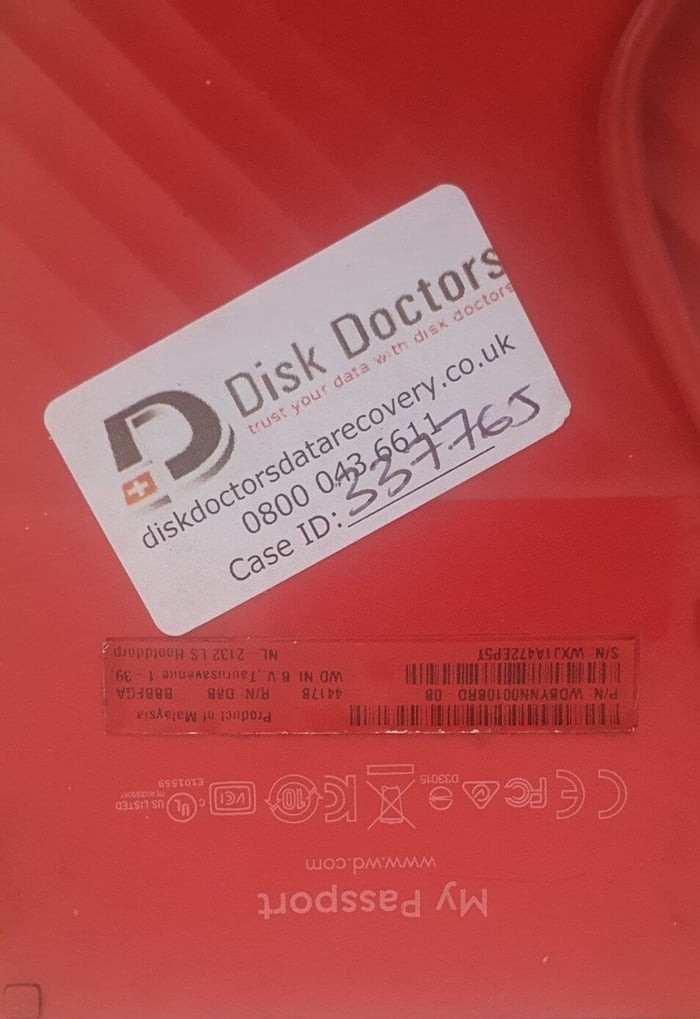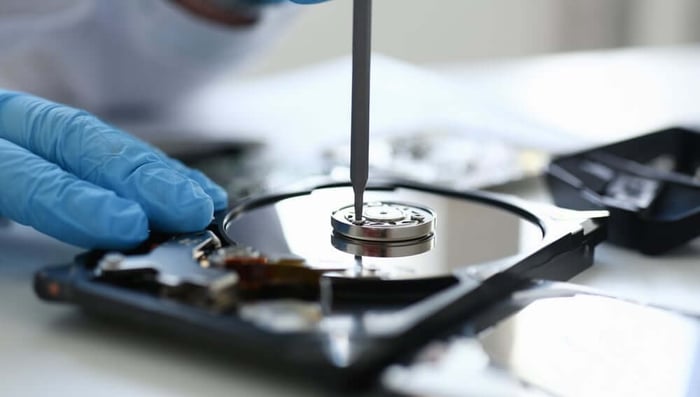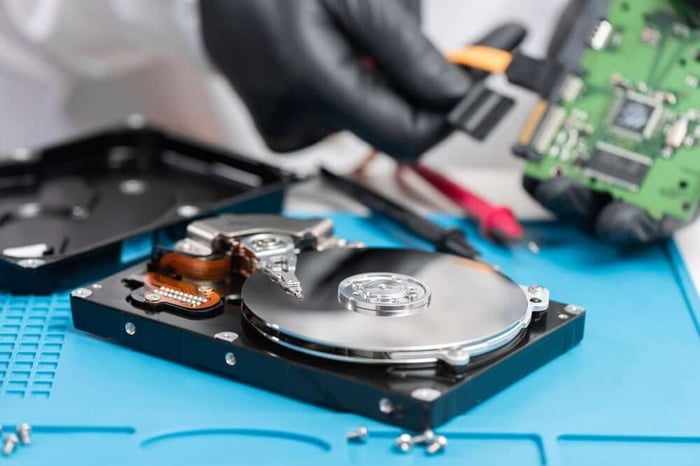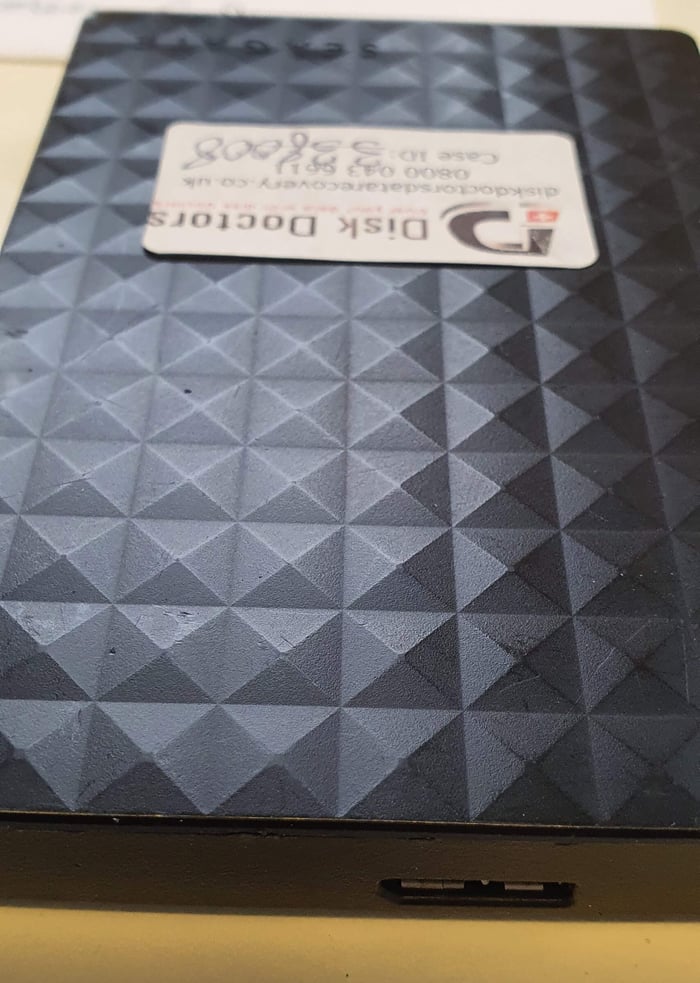Table of Contents
Case Study: Western Digital My Passport 1TB Data Recovery
At Disk Doctors UK, we specialise in tackling complex data recovery scenarios where conventional tools and interfaces fall short. One such case involved a Western Digital My Passport 1TB data recovery (Model: WD10JMVW-11AJGS4), which is an external hard drive that arrived at our London data recovery lab exhibiting classic signs of internal failure: sluggish performance, intermittent recognition, and inaccessible user data.
Initial Symptoms & Diagnostic Observations
The client reported that the drive was recognised by their system but failed to load data, with extremely slow read speeds and frequent timeouts. These symptoms typically suggest firmware-level corruption, bad sectors, or degraded read heads—issues that cannot be resolved through standard USB interfaces or software utilities.
Upon inspection, our engineers identified the following:
- Drive Make & Model: Western Digital My Passport
- Internal HDD: WD10JMVW-11AJGS4
- Capacity: 1TB
- Interface: USB 2.5"
- Failure Type: Service area corruption, bad blocks, weak head
- Symptoms: Recognised by the system, but data is inaccessible and read operations are extremely slow
USB Interface Limitations & SATA Conversion
USB-based drives often pose a challenge for advanced recovery due to their limited diagnostic access and proprietary firmware structures. To overcome this, we performed a PCB conversion, replacing the native USB board with a compatible SATA PCB featuring a similar controller architecture. This process involved:
- ROM Transfer: Migrating ROM data from the original USB PCB to the SATA board to preserve drive identity and calibration
- Controller Matching: Ensuring the SATA board matched the USB controller’s microcode and firmware compatibility
- Interface Upgrade: Enabling full access via PC3000 for low-level diagnostics and firmware manipulation
This conversion allowed us to bypass USB bottlenecks and communicate directly with the drive’s internal firmware modules.
Firmware Repair & Head Map Reconstruction
Once connected via PC3000, we initiated a full backup of the service area—also known as the firmware zone—which contains critical modules responsible for drive operation. Several modules were found to be corrupted or misaligned, preventing normal access to user data.
To stabilise the drive, we:
- Repaired and recalibrated key firmware modules
- Rebuilt the translator tables to restore logical access
- Created a custom head map, identifying one weak head that required special handling during cloning
The presence of bad sectors and a degraded head meant that data recovery had to be performed in stages, prioritising healthy heads first and then carefully extracting data from the weaker head using adaptive read techniques.
Cloning Strategy & Recovery Execution
Our cloning process was executed in two phases:
- Phase One: Cloning all accessible data using the healthy heads, ensuring maximum throughput and minimal retries
- Phase Two: Targeted extraction from the weak head, using controlled read parameters and sector-level retries to minimise stress on the drive
Despite the physical and firmware-level challenges, we successfully recovered 100% of the client’s user data, including documents, media files, and critical business archives.
Final Outcome: Full Recovery, Zero Data Loss
This case underscores the importance of technical expertise, precision tools, and a methodical approach when dealing with USB-based hard drive failures. By converting the interface, repairing firmware, and adapting to head degradation, we were able to deliver a complete recovery—reinforcing our commitment to data integrity and client trust.
Experiencing Similar Issues? Contact us for Western Digital My Passport 1TB data recovery
If your Western Digital My Passport or any USB external drive is showing signs of slow access, unreadable data, or intermittent recognition, don’t wait for the problem to escalate. At Disk Doctors UK, we offer professional diagnostics and tailored recovery solutions for even the most complex cases.
Trust Disk Doctors UK for Expert Data Recovery
At Disk Doctors UK, we specialise in USB, SATA, SSD, SCIS, SAS and encrypted hard drive recovery — even in cases involving firmware corruption, weak heads, or physical damage. Our london data recovery lab is equipped with industry-leading tools and decades of experience.
Whether you're a business protecting client records or an individual safeguarding memories, we treat every case with precision, confidentiality, and care.
Visit us at our new London data recovery location:
Suite 406, 20-21 Aldermanbury, London EC2V 7HY
Call us today for a free consultation
Phone
02030 86 9512 & 08000 436 611
Or
Submit a case online by filling out a short form in the top right corner, which will submit an enquiry and wait for our response
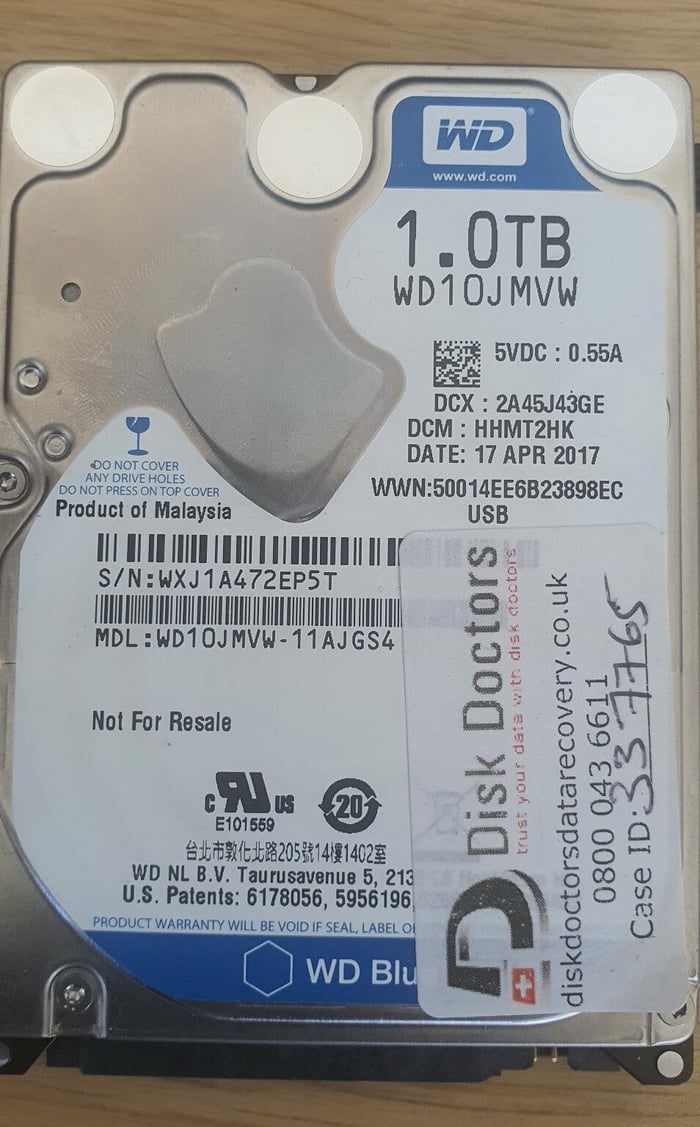
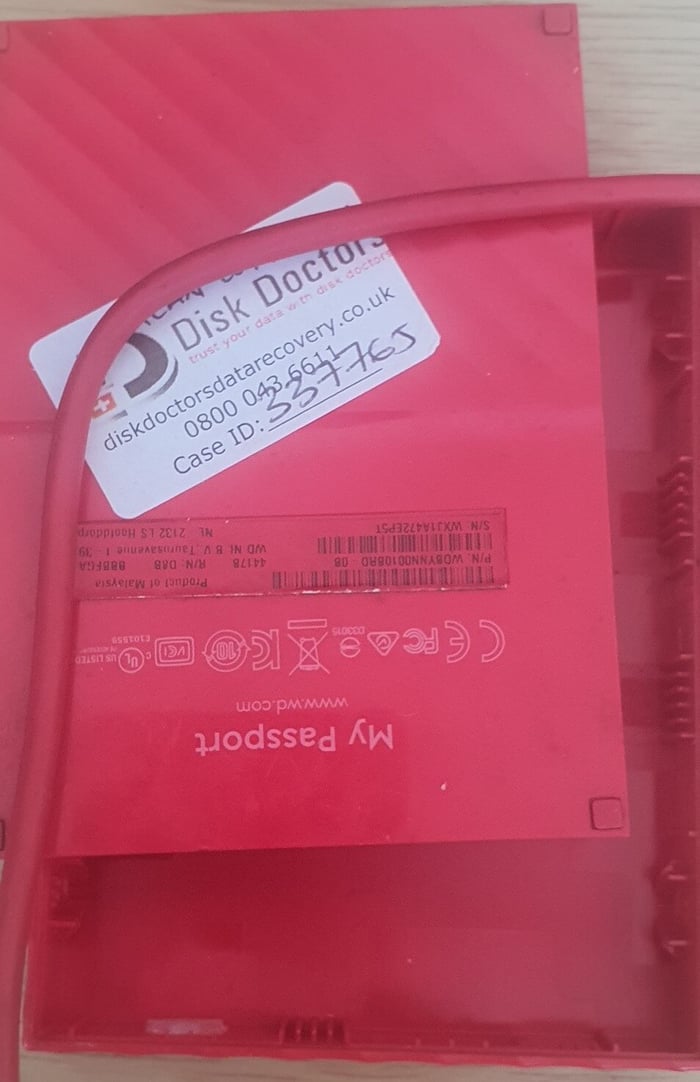
Frequently Asked Questions
Why USB Drives Fail — And What You Can Do?
USB hard drives are convenient, but they’re also prone to failure due to:
- Electronics failure
- Unsafe ejection
- USB port is loose or has come off completely
- Faulty USB cable
- Vulnerability to physical damage and power surges
- Enclosure encryption or proprietary controller chips
- A lot of other issues
If your USB drive is showing signs of failure — slow access, clicking sounds, or unreadable files — avoid DIY attempts. Powering the drive repeatedly or running recovery software can worsen the damage.
My Western Digital My Passport drive is slow and not showing my files. Can it be recovered?
Yes, slow access and unreadable data on WD My Passport drives often indicate service area corruption or bad sectors. At Disk Doctors UK, we convert the USB interface to SATA for advanced diagnostics, repair firmware, and recover data—even from weak heads and degraded sectors. Contact us for a professional assessment and recovery solution.



